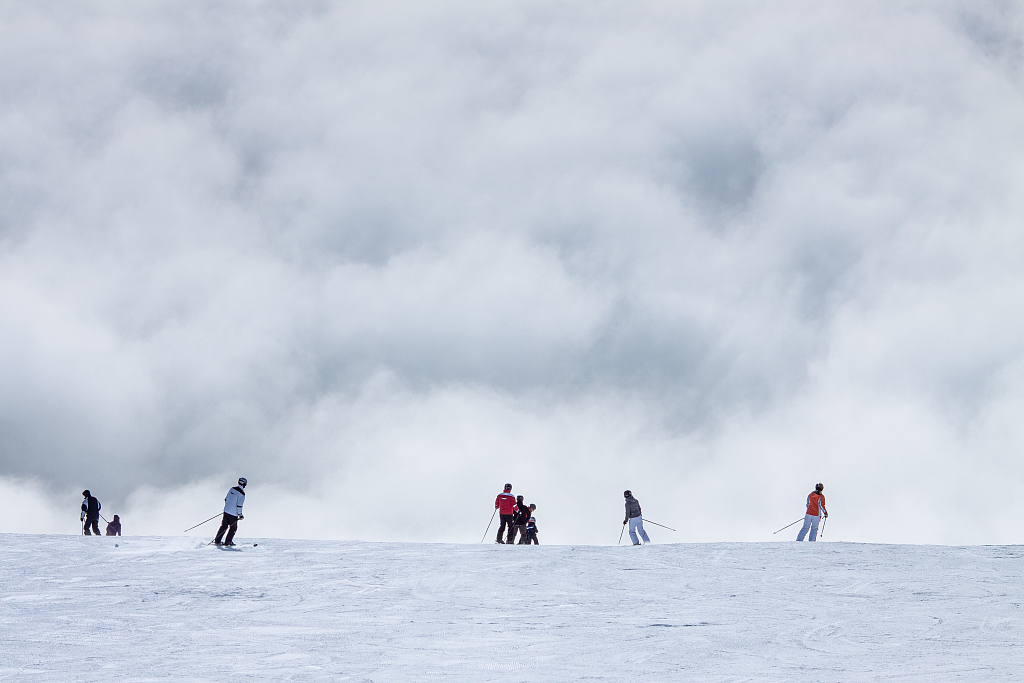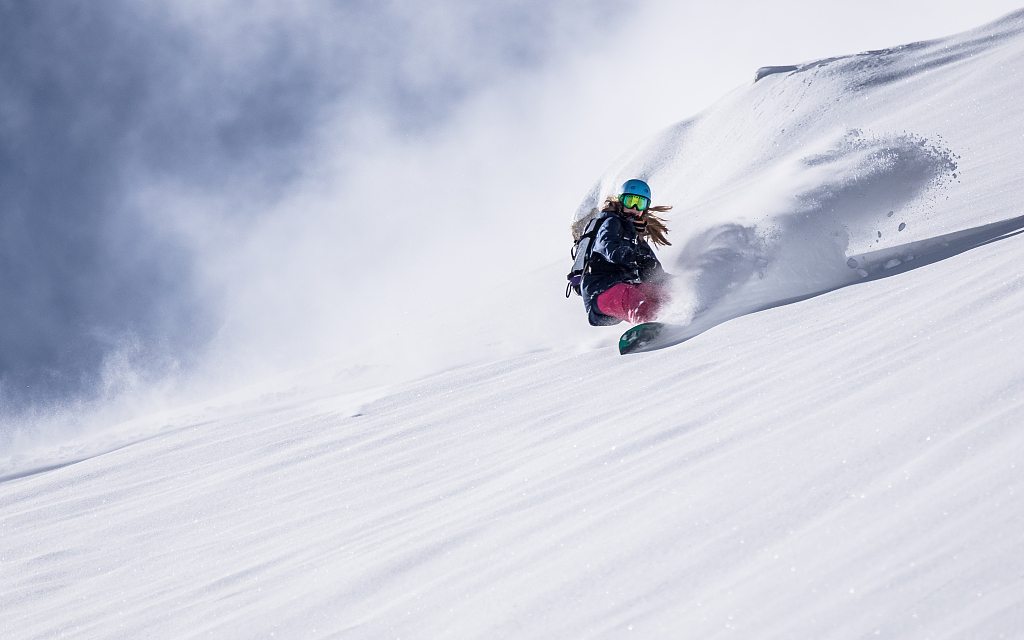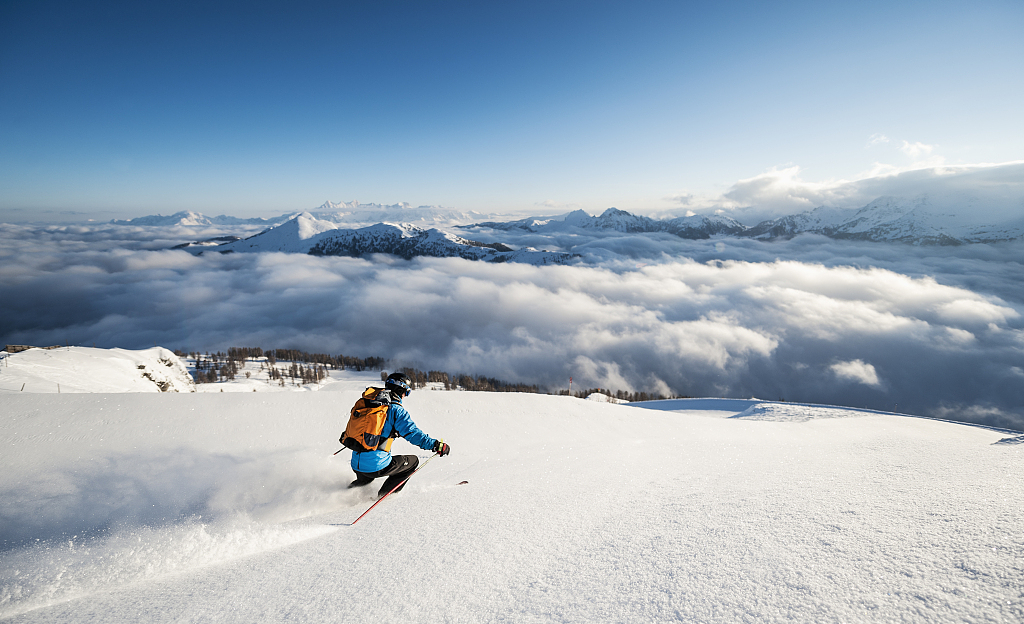A singular bright strip of snow stands out brightly against Austria's autumnal surroundings but the ski slope's early opening is drawing concern from environmentalists.
Ski season in Europe's Alps usually starts from mid-November but in fashionable Kitzbuehel in western Austria, a 700-meter-long (2,300 feet) track using recycled snow already opened last weekend.
For enthusiasts, especially young competitors in the region, they say skiing in October is "a chance not to be missed." But for Austria's Green Party wing in Salzburg, it's "just grotesque in the era of climate urgency."
The Resterkogel slope, which is at an altitude of 1,800 meters, uses snow saved from the previous season, which is stored under an insulating tarpaulin.
Many resorts in the Austrian, Swiss, and French Alps use this method to ensure that the ski season starts on time despite increasing uncertainty in the wake of rising temperatures.
While the mountains still bask under the autumnal sun in temperatures of around 15 degrees Celsius (59 Fahrenheit), it is too warm to use snow cannons, which pressurize water to create artificial snow.
"We are saving water and energy since it is snow that we do not have to produce," says Josef Burger, head of the ski resort Bergbahn Kitzbuehel company.

Skiers in Austria. /VCG Photo
Skiers in Austria. /VCG Photo
'Not skiing temperatures'
The track is the first in Kitzbuehel to open in October for the fifth consecutive year. And besides the Austrian glaciers, where the ski season has already started, it is also the first to open in the country.
Organizers say demand for the slope is strong in a resort which annually holds an iconic Alpine Skiing World Cup downhill race on the Hahnenkamm mountain.
Other slopes in the country, such as in Tyrol and Salzburg, will gradually start opening between November and December and run until late March.
Under clouds and a temperature of 12 degrees Celsius, Dutch tourist Ina Postma took advantage of the slope with her son, who she says is "a very good skier who wanted to be here in the first few days (of opening)."
But he admits the snow is "difficult because it's warm."

Skiing is deeply rooted in Austrian culture. /VCG Photo
Skiing is deeply rooted in Austrian culture. /VCG Photo
"These are not temperatures to ski in," Josef Scheinast, a spokesman for the Green Party in Salzburg told AFP.
"It's dramatic in light of the climate debate to continue doing anything using fossil fuels," he said, arguing the carbon effects of the construction equipment used to build the slope are questionable.
'Ecology and environment'
But Burger rejects that criticism, saying it "lacks objectivity."
"I can understand that a white track in the middle of grass is not to everyone's liking but what we do is ecologically and economically relevant."
On Saturday, some 800 people used the ski lift and in the coming weeks several national teams participating in the Alpine Ski World Cup will train on the Resterkogel slope.
Austria is also bracing for the World Cup racing circuit which kicks off in the resort of Soelden on October 26.

Austria is the top destination for winter sports in Europe. /VCG Photo
Austria is the top destination for winter sports in Europe. /VCG Photo
But the Austrian branch of the World Wide Fund for Nature (WWF) said in a statement "all winter tourism should be rethought," arguing the country must "reconnect with the origins of winter sports connected to nature, without a bad conscience."
The Greens could pursue the issue after the party surged in September's legislative election and could become a coalition partner with Sebastian Kurz's conservatives.
But change could be difficult. Skiing is deeply rooted in Austrian culture and the industry provides 99,000 direct and indirect jobs. In terms of the number of ski passes sold, Austria is the top destination for winter sports in Europe.
(Cover photo via VCG)
(If you want to contribute and have specific expertise, please contact us at nature@cgtn.com.)
Source(s): AFP